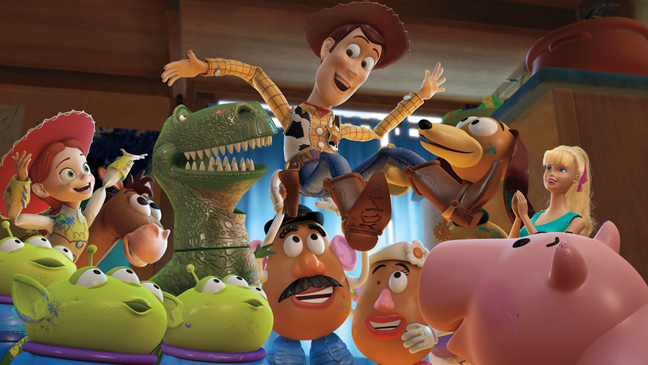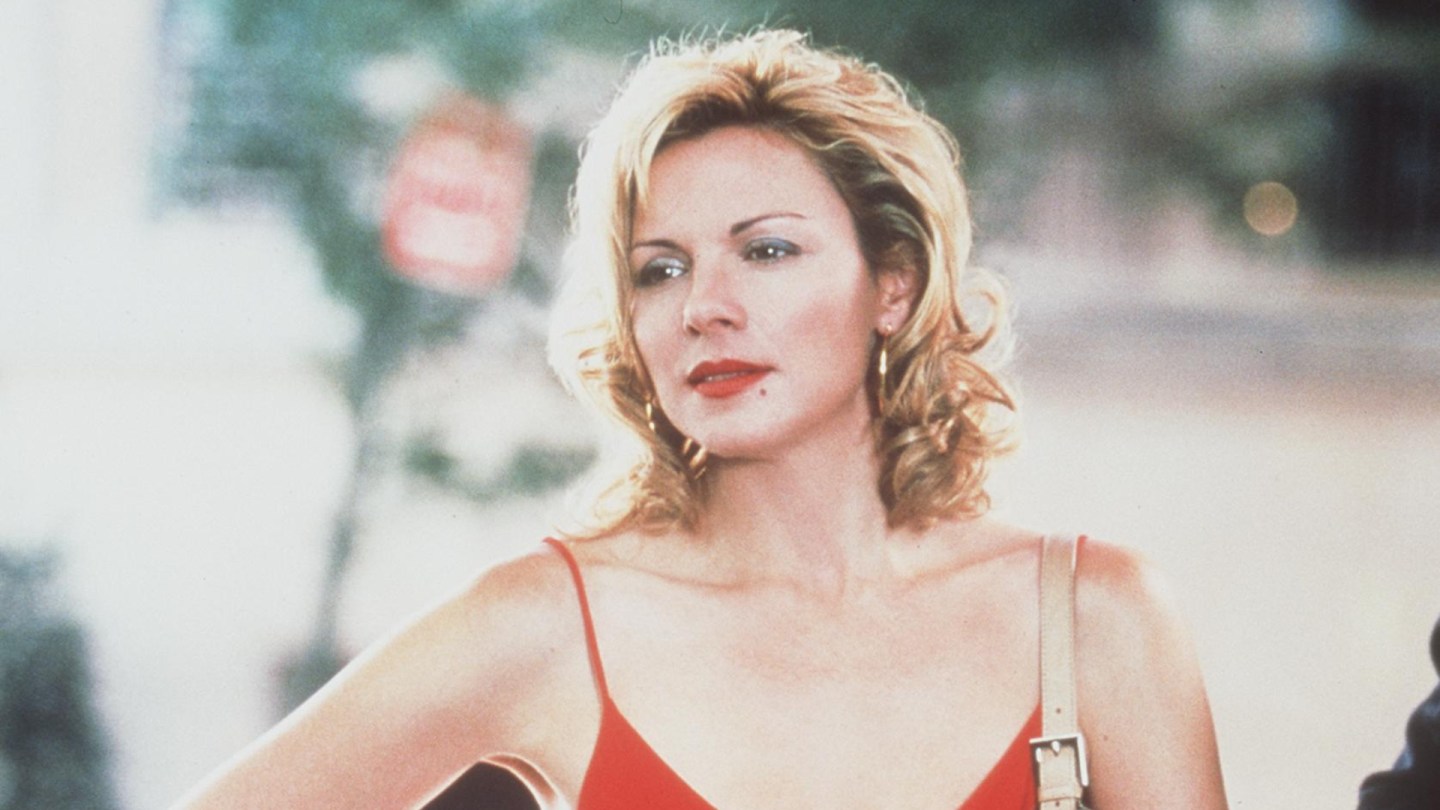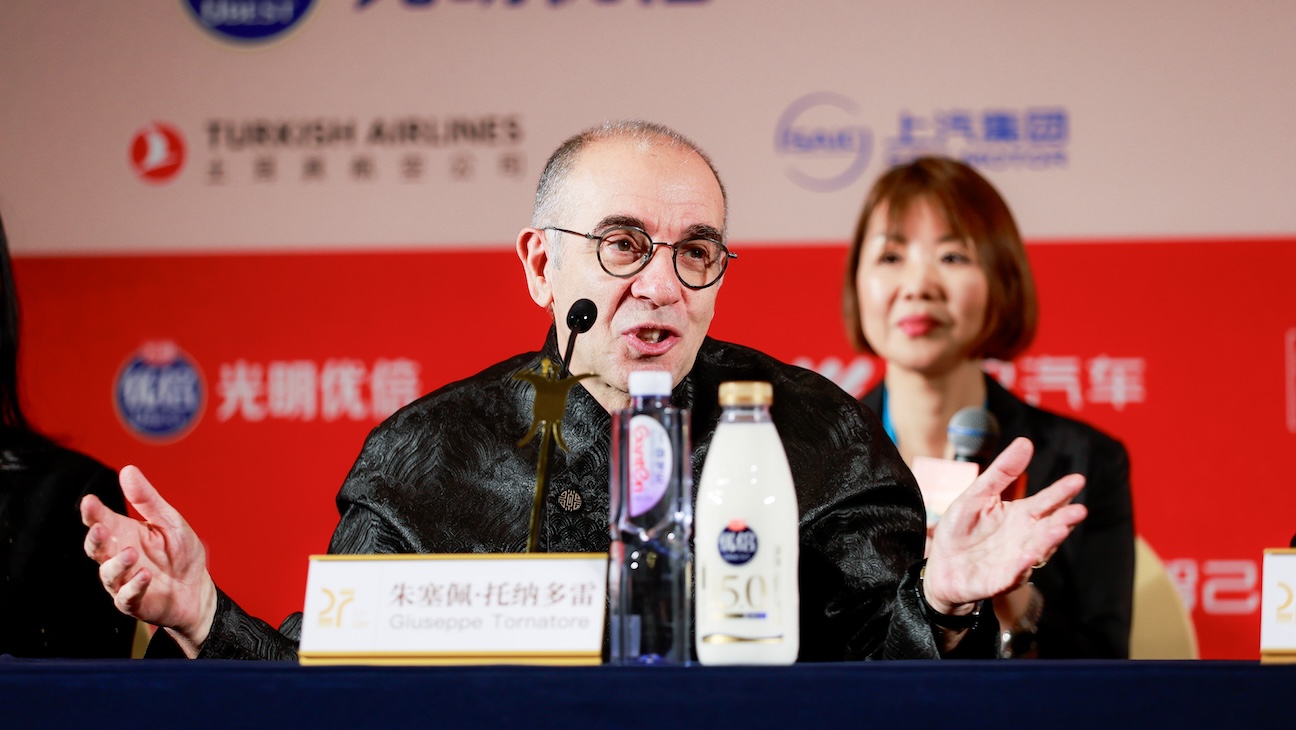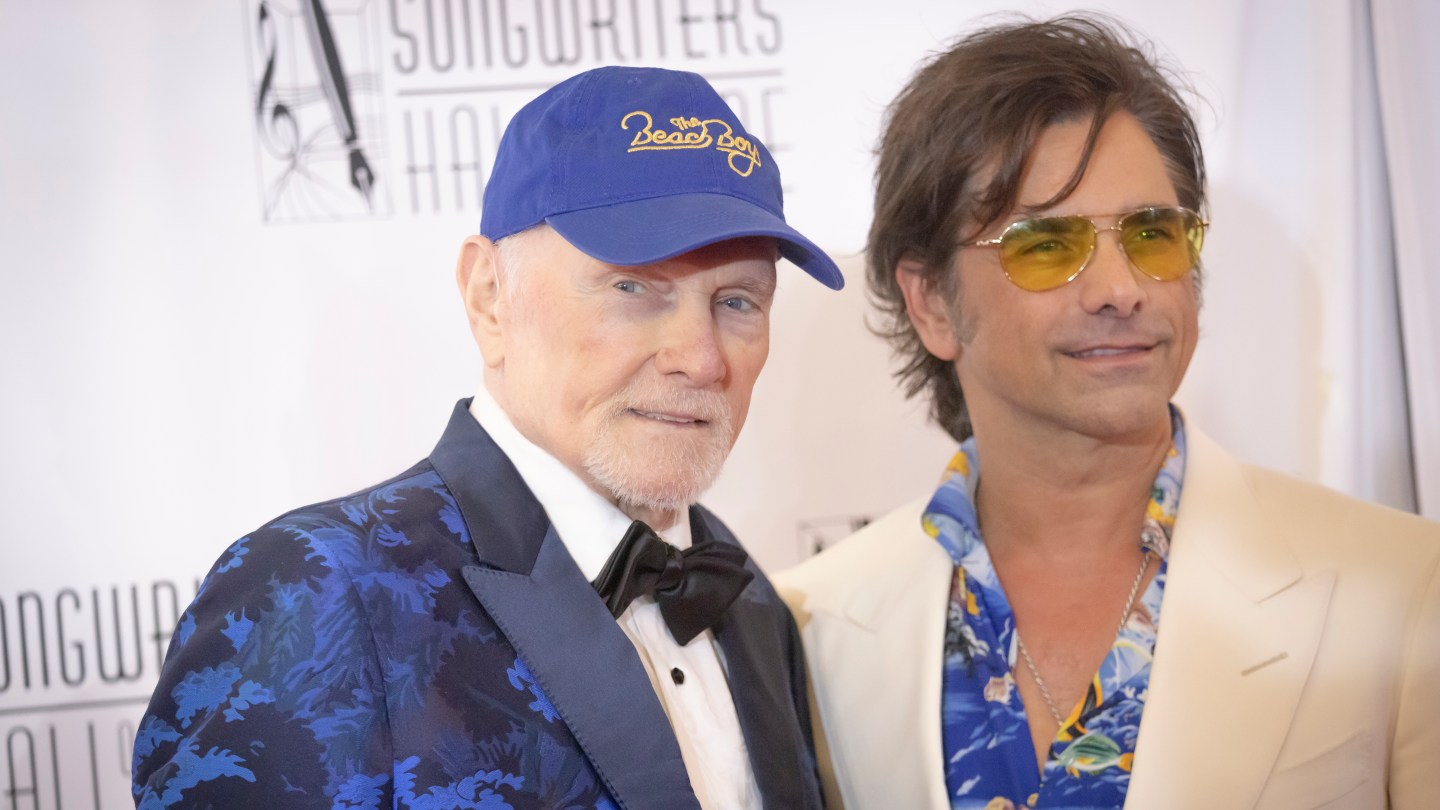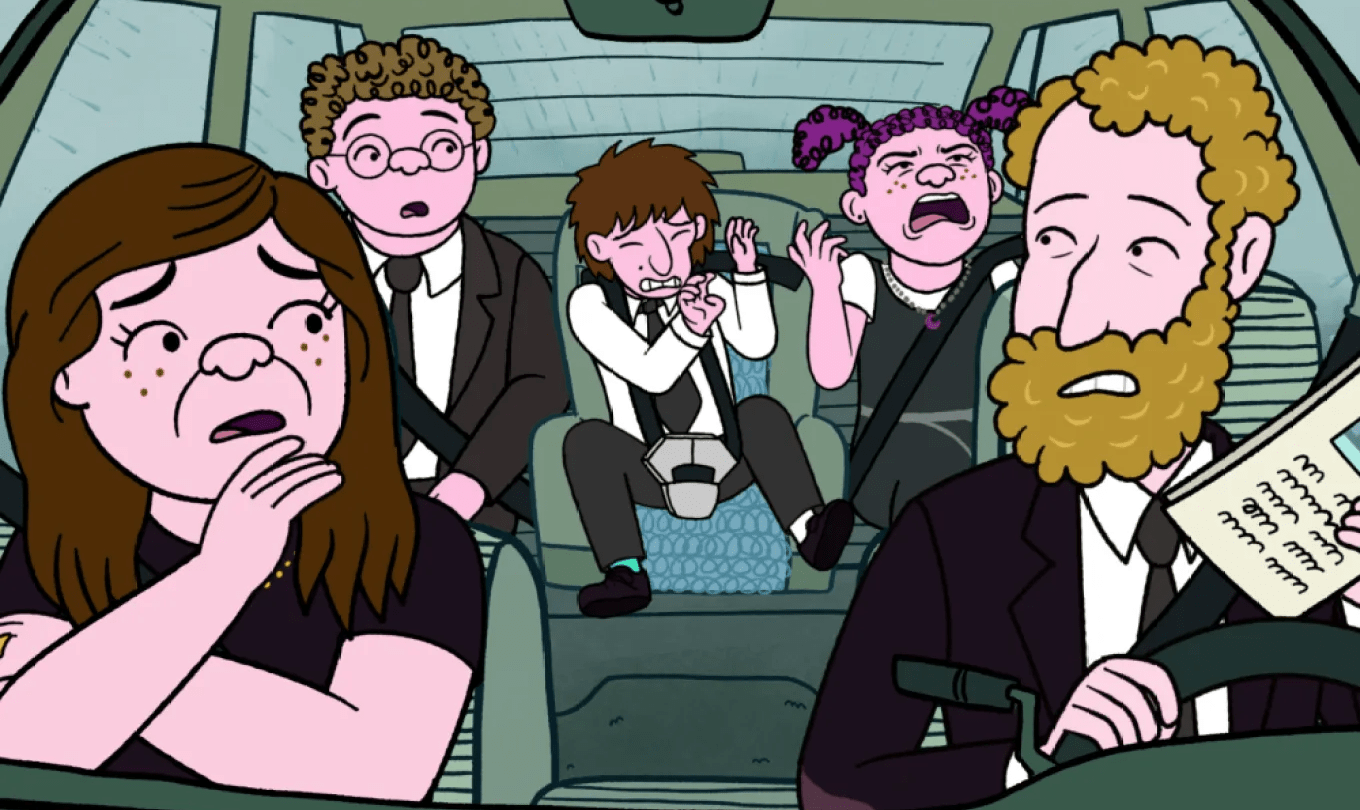
Raphael Bob-Waksberg, the man broadly credited with reinventing animation with his 6-season, three-time Emmy-nominated Netflix hit Bojack Horseman, is back with more family trauma, but no taking animals, in Long Story Short.
The new Netflix animated series, which Bob-Waksberg premiered at the Annecy international animation film festival on Thursday, follows the trials and tribulations, or as Bob-Waksberg puts it, the “small t traumas,” of the Schwoopers, a fairly ordinary Jewish family.
“On one hand, it is an animated family comedy like Bob’s Burgers or King of the Hill, that kind of show, we have two parents, three kids,” he said, speaking at Annecy ahead of the series’ world premiere. “But the way we’re telling stories is a little different, in that we’re traveling back and forth through time. Not by using a time machine, just in the way we’re telling stories. So in the first episode, we get to meet these kids as kids, and then in the next episode, we jump to the future, and they’re adults with kids of their own.”

Long Story Short
Netflix ©2025
Compared to the “cartoonishly bad parents” on display in Bojack Horseman, the family in Long Story Short is more grounded in reality. “Most of us have parents that exist somewhere in the spectrum of pretty good to not the best, and yet, all of us are fucked up in some way,” Bob-Waksberg said. “It’s so easy to just write off your terrible parents, your terrible childhood, like we did in Bojack, [but] I think there are more nuanced, interesting stories to tell when your parents are maybe not quite what you need them to be in one moment, but you can’t write them off completely.”
Long Story Short stars Ben Feldman (Mayfair Witches), Abbi Jacobson (Broad City) and Max Greenfield (New Girl), as the three Schwooper siblings, Avi, Shira, and Yoshi, with Paul Reiser (Stranger Things) and Lisa Edelstein (Girlfriend’s Guide To Divorce), as the parents, Elliott and Naomi. Angelique Cabral (Life in Pieces) plays Avi’s girlfriend, Jen. Other cast includes Nicole Byer (Nailed It!), Dave Franco (Krapopolis) and Michaela Dietz (Steven Universe).
Bob-Waksberg wrote the series and served as showrunner, executive producing alongside Noel Bright and Steven A. Cohen for Michael Eisner’s The Tornante Company, which produced BoJack. The animation is from ShadowMachine. Bojack producer Lisa Hanawalt is the supervising producer and designed the series’ original art. Corey Campodonico and Alex Bulkley are co-executive producers.

‘Long Story Short’
Netflix ©2025
Since BoJack wrapped in 2020, Bob-Waksberg has co-created the animated series Undone, which ran for two seasons on Amazon, and acted as writer and executive producer on Hanawalt’s animated series Tuca & Bertie, also produced by Tornante and ShadowMachine, which ran for three seasons, the first on Netflix and the final two on Adult Swim.
Bob-Waksberg sat down with The Hollywood Reporter at Annecy to talk about writing from a place of vulnerability, the evolution of adult animation, and why he felt inspired to explore his Jewish identity, a part of himself “I hadn’t mined yet.”
My joke after seeing this show is: It makes Woody Allen look goy. This is the most Jewish thing you’ve ever done, isn’t it?
The most explicitly Jewish, yeah. I mean, Jews have been claiming me for a long time. I think you could see a Jewish influence in my other work. But yes, this is absolutely the most explicitly Jewish thing by a wide margin.
Is that because there’s an autobiographical element to this story?
I think autobiographical is too strong a word. I wouldn’t want to present this as memoir about me in my life. But you know what? I’m going to give you a different version of the origin story for this than I’ve been telling everybody else. One element of it, which I’m just now remembering, happened right before the pandemic. I was asked to moderate a talk with Charles Yu about his new book at the time, Interior Chinatown, which he’s since made a TV show out of.
I remember reading it and being really fascinated by how explicitly Asian American it was, and that he was really exploring it in a really interesting way. I wouldn’t say that was the first time I thought about my own identity, but it did get some of my gears moving a little bit about like: Here’s an area of my life that I haven’t mined yet, and would I want to write something as nakedly about identity as Charlie did here, so I’ll give him credit for a little bit of the inspiration for this show.
Did you feel, compared with Bojack Horseman, that you have less space to hide in this show? It’s not a satire, there are no funny talking animals…
Yes, it feels…riskier is the wrong word, because that makes it seem like it’s really pushing the boundaries. But I feel I am being more vulnerable in a way. Not with autobiographical details, but because it’s a less ironic show, right? On Bojack, there was this kind of: “Fuck you if you don’t like it” kind of energy. I protected myself a little bit on Bojack with some irony and with some cartoonishness. It felt a little thrilling to be like: What if I didn’t use those here, what if I just present it as is and have faith you will be interested in these characters and care about them and think that they are funny.
It seems there is very little original, non-IP-driven stuff in animation right now, but Netflix seems to be one of the few companies doing these kinds of original shows.
You really teeing me up to compliment Netflix, but since this is an industry magazine, we can talk turkey a little bit. I did feel a little bit in the development and pitching of this show, more so, obviously, than when I pitched Bojack, that I was the brand here. I do feel it was a bit safer [for Netflix] to be able to tell their audience: ‘From the creator of Bojack Horseman.’ But I also feel like in adult animation TV, it’s not as IP-focused. If you look at all the wild successes in adult animation, and they’re all original ideas. Look at Fox. The Simpsons, is a brand now, but was an original. Look at Seth MacFarlane’s shows and Bob’s Burgers, King of the Hill. Rick and Morty was not IP. In the adult animation space, it’s actually the opposite.

‘Long Story Short’
Netflix ©2025
There are a lot of classic elements in this series; it has the classic family sitcom-type set-up, but one new, and very key element, is the time-shifting you do. The shift from the past, when Avi is young, to him as an older man in the first episode is incredibly powerful, emotionally. How did you land on that technique?
Which we’ll be using throughout the show. Again, I was thinking practically. One of the things that I observed is a lot of the most popular shows in streaming, not all, but a lot of them, are shows that originally aired on a broadcast and have over 200 episodes, or 150 or whatever, that magic number is for syndication. The Office is a big hit on streaming. New Girl is a big hit on streaming. Suits is a big hit on streaming. Part of it is that they have this built-in awareness of what these shows are. But honestly, I think part of it is that we enjoy getting to know characters over a long time, especially in comedy. I think Bojack certainly benefited from that, getting to 77 episodes.
And I was thinking about how hard it is to make more episodes now in the current landscape, like, you know, you don’t get to that number by doing four seasons of eight episodes each. So part of my thinking was: ‘Is there a way to shortcut that emotional investment and to feel like we’ve known these characters for a long time by seeing them over a long time? I was thinking of [Richard Linklater’s film] Boyhood. I was thinking of [the novel] Building Stories by Chris Ware, I was thinking about the end of Six Feet Under. I’ve never seen Six Feet Under, but I’ve seen the ending, because people talked about how great it was. And it is great. I was like: I don’t know anything about these characters, and I’m fully invested.
How did you try to make this show distinctive, and separate, in theme, in style, from Bojack Horseman?
I liked the idea of limiting the range a little bit and focusing. So this show is not going to be as cartoony or as bleak |as Bojack]. We’re gonna we’re gonna trim the edges a little bit and focus it a little more in the real world, although it is still a cartoon, and there are certainly cartoony elements.
One thing that was really important to us was we wanted it to feel handmade at all times [and] not to smooth the edges too much, feel like the characters are still hand-drawn, not always coloring within the lines. I said: ‘I don’t want to see lines that look like they were drawn with a ruler.’ Everything should look drawn with a free hand, it should feel like we messed up a little bit, but we’re not going to clean it u. I feel that there’s a warmth to that that really helps the show come alive.

‘Long Story Short’
Netflix ©2025
I know you said the show is not really autobiographical, but I have to ask about one element, which is how Avi relates to his mother through humor, by making her laugh. Is that how you relate to your mum?
I would say that element is true, and that’s true of my whole family, actually. I mean, a lot of people say: “Where’d you get your comedy from?” And it’s like, we were a family that laughs a lot and jokes a lot and teases each other a lot. So that part is absolutely true, and that was one of the rhythms, and the specificities that I wanted to do in this show, to do a family that in some ways interacts in the way my family acts. Though in other ways they are very different. Do we have time for a joke? There’s this is an old Jewish joke that my dad loves. It’s the kind of joke I grew up with.
So: A Nazi officer is driving down the street and he sees an old Jew walking by the side of the road and he decides to have a little bit of fun. The driver rolls down the window, and he yells at the old Jew: “You! Who is the enemy of the German people?” And the old Jew knows what the correct answer is, and so he says: “The Jews and the bicycle riders-.” And the Nazi is confused. He says, “Why the bicycle riders?” And the Jew says: “Why the Jews?!?”
So there’s a lot in that to unpack, but I think that first of all, that kind of speaks to the kind of humor that I grew up with. I think it speaks to a very Jewish sensibility that there’s pain in the humor. It’s a very naked, wounded kind of joke, and, a lot of times, that’s how we cope with things, by making jokes. How we communicate love is by making jokes. How we communicate anxiety is by making jokes. How we communicate love is by communicating anxiety. I think the specificity of the humor felt very important to me. I don’t even claim that that’s just a Jewish thing, but it felt deeply entwined with the identity as I see it, and that is the identity that I wanted to explore through these characters.
Long Story Short launches on Netflix August 22.
#BoJack #Horseman #Creator #Raphael #BobWaksberg #Long #Story #Short

